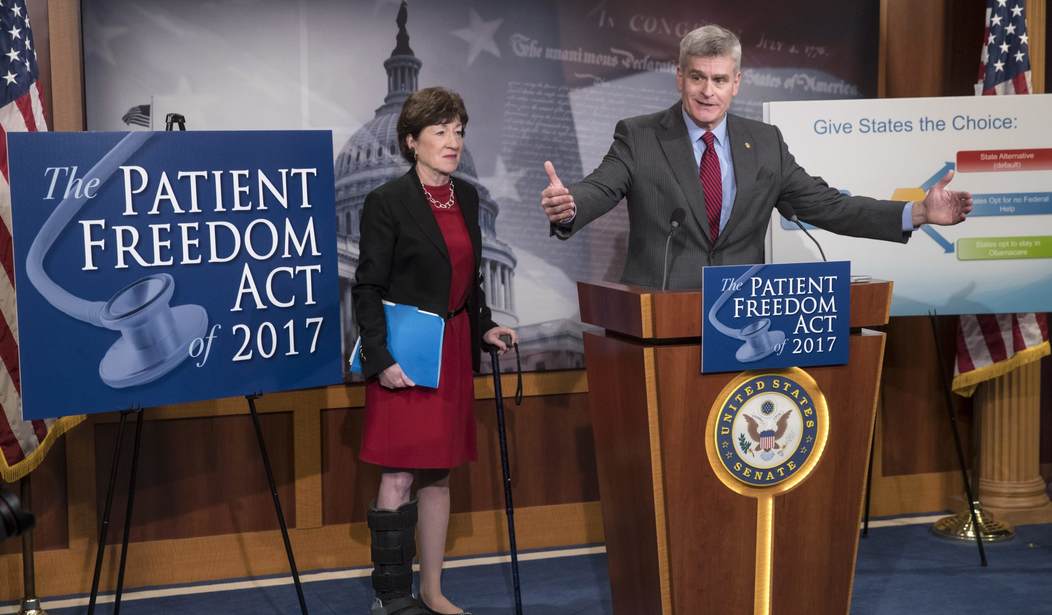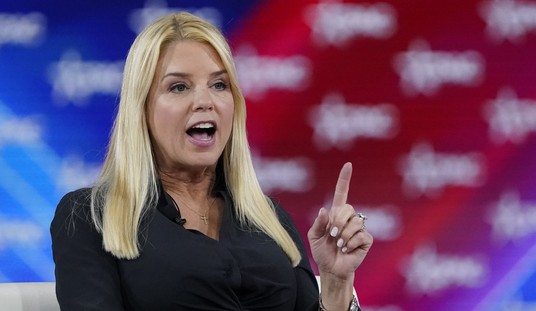WASHINGTON – Sen. Bill Cassidy (R-La.) told PJM that critics should stop “bashing” alternatives to Obamacare given the 2018 Affordable Care Act premium hikes.
Affordable Care Act premiums will reportedly increase an average of 37 percent nationally next year. The enrollment period for individual plans on the ACA marketplace began at the beginning of the month.
“I’m hoping everybody that thought the status quo was wonderful looks at these 37 percent premium increases and says ‘we should do something different’ – and instead of bashing alternatives, which give patients the power and states the power, they say, ‘hmm, we’d better give somebody the power because right now whoever has the power is raising rates 37 percent.’ So, I am sure hoping the working family unable to afford their insurance gets more sympathy than the actors in the status quo,” Cassidy said after speaking at the recent Health Care Payment Learning and Action Network (HCPLAN) Aligning for Action Summit.
Democrats like Sen. Ben Cardin (D-Md.) have attributed the 2018 premium increases to President Trump’s elimination of the cost sharing reductions for insurance companies.
“Marylanders know now who to blame for their high increases in health insurance premiums in the individual marketplace. Clearly, President Trump’s decision not to fund the cost sharing has caused a large increase in premiums,” Cardin said in a video posted on his Facebook page.
Cassidy shared his reaction to those comments.
“So over the last five years we’ve seen premiums go up anywhere from 100 to 300 percent – that was before Trump took office. It’s inherent in the way those exchanges are designed that you are going to end up, as we do now, with 50 percent of the counties having only one insurer, no competition and costs skyrocketing,” he said.
Cassidy is a co-sponsor of the Alexander-Murray Senate bill that would restore the CSRs that Trump ended.
“We believe we need a package which stabilizes the market in the short-term and lays the groundwork for a long-term solution like Graham-Cassidy-Heller-Johnson. However, we recognize this short-term stabilization will not pass unless concerns of the House are addressed,” Cassidy said in a statement with Sen. Lindsay Graham (R-S.C.) on Oct. 19.
“We are working with Senator Johnson and House members to include more flexibility provisions like the ones found in our legislation, Graham-Cassidy-Heller-Johnson,” they added.
During the event, former Sen. Tom Daschle (D-S.D.) said lawmakers often describe the U.S. healthcare system as the best in the world but he disagrees with that designation.
“We have to be honest with ourselves. There’s still the perception out there that we have the best healthcare system in the world. We don’t. We have the best technology in the world,” he said, adding that healthcare costs are on track to reaching 32 percent of GDP.
“We don’t have the highest percentage of those covered in the country when you look at comparative countries worldwide. We have virtually one of the lowest life expectancy levels in the industrialized world. We have the highest infant-mortality level in the industrialized world, so none of the trends are going right,” Daschle also said.
PJM asked Daschle to identify the major aspects of the healthcare system that he thinks need reform.
“Most importantly, it’s not the CSRs, it’s a reassuring mechanism, I would say, similar to what we have for Medicare Advantage or Part D — that reassurance is the underpinning of a strong public private partnership today. With that reassurance mechanism, however it is designed, I think we could stabilize the market very quickly.”
Daschle is optimistic that both parties can come together to make needed changes to the healthcare system.
“Obviously, the only permanent legislation is bipartisan legislation. If it’s partisan, it’s going to get repealed the next time the next party comes in. I think what we’ve got to do is look for bipartisan solutions here, and I’m confident just as we saw with the 21st Century Cures and MACRA there’s no reason why we can’t be bipartisan about this too,” he said.
Medicare made a total of $57.3 billion in “improper payments” during fiscal year 2016, according to federal government data. PJM asked Cassidy what he thinks Congress and the Trump administration should do to address the problem.
“I don’t even think we know the scope of the problem. It’s interesting — when anyone speaks about the lower overhead of Medicare, they don’t include the improper payments, the waste, fraud and abuse, which would dramatically increase the overhead of Medicare if you considered that part of the overhead. So, I think, one, we need a full scope of it,” Cassidy said.
“I do think you have to line incentives — once you have the patient and the doctor in a relationship, the improper payments start going away because if it’s a decapitated system and the doctor and the patient are in it together you don’t have an incentive to improperly pay,” he added. “Because if you are improperly paying, you are just kind of cannibalizing yourself.”









Join the conversation as a VIP Member